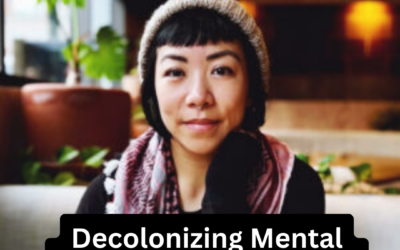Podcast: Play in new window | Download (Duration: 44:39 — 30.7MB)
Subscribe: Apple Podcasts | Spotify | Amazon Music
Hey everybody, we are BACK and ready to take off on Season 4!!! Wahoo!
Narcissism – This time we focus on how it’s created and what is going on behind the narcissists defenses. Later we will address Malignant Narcissism, which is in a class all to itself! It deserves an entire episode, but for today we will look at what causes it, healthy and pathological degrees of it and what is really going on under the hood of the person afflicted with narcissism.
We really heard the requests wanting to hear more about some of the diagnostic pieces of attachment, trauma and the relational sciences. Specifically, narcissism and borderline personality disorder are of great interest to many of you. We put our heads together about how to best do this in a way that honors those who are struggling with these issues and those in relationship with them. To do this, we are going to weave conversations about narcissism and borderline personality disorder throughout the season. It may be snippets in a podcast about something else, or entire episodes focused on these concerns.
Today, we’re going to get started on narcissism.
Greek version of the myth:
Narcissus, was the son of River God Cephisus and nymph Lyriope. He was known for his beauty and he was loved by God Apollo due to his extraordinary physique.
Narcissus was once walking by a lake or river and decided to drink some water; he saw his reflection in the water and was surprised by the beauty he saw; he became entranced by the reflection of himself. He could not obtain the object of his desire though, and he died at the banks of the river or lake from his sorrow.
According to the myth Narcissus is still admiring himself in the Underworld, looking at the waters of the Styx.
Healthy Narcissism (!?)
We all have some element of Narcissism and if we don’t, we get run over in life. We don’t want to be a doormat but we also don’t want to be on a High Horse above it all. We all have narcissism, it’s healthy entitlement.
Functional narcissism is about your sense of Self, healthy entitlement and being inside yourself, and really rolling with who you are as a person. It’s being confident instead of being overly in-tune to others opinion of you.
Problematic Narcissism
If it’s a character trait rather than a moment in time, it’s all about defense. This defense protects the smallness and inadequacy and shame at it’s core, and to compensate, grandiosity is born. That or the opposite, which we will discuss, but if I attack the hell out of myself then I protect myself from you having less than positive feelings about me because I beat you to it.
Basically, it’s about deriving self-esteem from outside affirmation in order to maintain internal validity.
Narcissism is an injury to the Self, where we’ve had to give ourselves up in service of the other or blow ouselves up to feel “enough”.
It is associated with the avoidant/dissmissing attachment category, or the blue side of the attachment spectrum.
Narcissistic Tendencies Versus a Disorder (from a Psychologist’s Perspective)
It’s only in the much higher degree and more rigid degree of the trait that we would call it disordered or problematic. This is NOT a judgment. We mean it’s problematic for the person who suffers from it and that it infiltrates most every relationship to a point that it significantly impairs daily functioning or social relationships. Not that a person with true Narcissistic personality disorder would notice this distress, because everyone around them are “stupid” or “the best.” You can imagine stupid one’s are differentiated from them and the best one’s reflect their version of themselves.
Narcissistic Injury:
Example: The blue side – (avoidance/dismissive attachment) is a defense, whether we live there or whether we travel there. When we feel very deeply vulnerable but can’t tolerate that experience, we pull into what we call a narcissistic defense to avoid an injury.
We need a balance of healthy narcissism (affirmation from others to build our identity) and narcissistic injury (feeling hurt or injured if criticized or put down).
Grandiose Narcissism
This one is easy to spot and you can feel it because when their light shines on you, it feels so good. You feel so special and it’s amazing and you would almost do anything for them. If you’re mirroring them back and making them feel good, then you may get that light. But anything can happen where that light will move. And once that light moves, it is dark, and it is painful because that disconnection is tremendous, you holding on to them but they’ve moved on to the next shiney thing.
We are sorry to report what you probably already know, they were relating to you not from a place of a connection, but from a place of their need to be validated.
Negative Narcissism or Depressive Narcissism
Big grandiose narcissism isn’t the only issue, there is also the equal and opposite side of the coin. It’s basically “I am so horrible. I am worse than anybody on the planet”, which makes me very special in my badness.
What grandiose narcissism and negative narcissism have in common is the feeling of pulling away from a sense of connection or community and seeing yourself from the view that the risk of being in a related place is too much.
The Truth:
Inside every grandiose narcissist, there is this highly insecure, shame-filled child.
And inside every negative narcissist, there is the image of the Big Self that is not realized.
If somebody lives in this place and really has that very early narcissistic injury, they are compelled by short term image. They would rather look good in the moment, but they’re not as concerned with the ongoing things like integrity and morality and trust over time.
When stricken with the problem, there’s not awareness of it so it’s hard to be compelled to look at it, there is so much to lose.
How Does Narcissism Develop
A common scenario is a person had narcissistic parents. This person was valued with what they brought to the parent for their role, not so much for who they were.
There’s always a judgement, even if the verdict is positive, they’re being evaluated.
So things are good or bad. They are good or bad. So, if you’re in a parent’s light, there’s a term that is important to understand called narcissistic extension. So, what happens for a child is that they learn that if I’m tap dancing or smiling or being good in a way or adoring – whatever it is that lights the parent up, then we’re good.
But if I begin to be mad, or differentiate, so that the parents are going to have to see inside of me instead of me see inside of them, then the connection is cut off.
Narcissistic Extension
This is when we have learned to support the other person’s ego by giving them what we know that they want. As kids we get highly skilled at reading a scene, knowing the unspoken and responding as wished. This is part of what causes the injury to the self, because in the midst of all that, where the heck are You?
If a child turns to their own needs and that parent feels that as a Break and is activated by it, it’s suddenly unsafe to tune in to their disapproval or distance. So we’d rather give ourselves up than lose our connection.
Often if you are in this dynamic, your achievements are a reflection of your parent’s worth.
Children and Achievement
Another way that you can create someone that struggles with narcissistic tendencies is to orbit the child and then the child believes they are the center of the universe. 🙂 Well they ARE the center of the universe for a fast minute, but that should only last a SHORT time. And truly they are only the center of your universe for their parents, and you do them no favors making them think they are extra-special OVER other children. They were shriveled raisins like everyone else and it is OXYTOCIN that make us think our coneheaded babies are THE VERY BEST BABY EVER. I mean, they are, of course, but only to us. We don’t want them growing up thinking they have to be the best, most special specimen of humanity to be Ok. Right?
If we keep propping our child up (over an extended period of time) into the most special thing in the universe and don’t give them natural, “no, you’re irritating. No, you’re this. No, you’re that” (Deflation), then they’re going to really be vulnerable to these narcissistic injuries later, and they won’t be able to tolerate boundaries or distress or bad grades or whatever that reflects their normalness. Not sure that’s a word but we will keep it it’s ok. 🙂
When children are over-inflated by parents they also know that they’re probably not THAT great. There’s an inconsistency there that can promote a need of a false self.
When you’ve learned early on that there’s a need to mirror back your caregiver, then things like your own needs, your own vulnerabilities, can be experienced as humiliating. We’re not allowed to be needy, emotional or negative or whatever it is that we’ve been shut down for.
Underneath the Narcissism
People that struggle with narcissism will have to devalue and even humiliate people at times.
Mostly, the need for inflation is rooted in shame and the feeling that must be something fundamentally wrong with my own three-dimensional self.
Shame is toxic if lived in, because shame induces this way of being ultimately rejected, so to have an underlying source of shame that you can’t tolerate having, you have to develop all sorts of defenses to not actually even recognize that it’s shame (i.e.: criticalness).
A narcissist sees things as a reflection of themselves. So because of that, they need to annihilate that in you. If you’re too close, you cannot have weaknesses because it’s a reflection on myself. And one of the ways that comes out is the criticism and putting you down.
Success is scored and discussed because you don’t get in a better place than I must deal with what that feels like.
Important note:
Narcissism and narcissistic defenses are not a conscious thought. In fact, much of this is implicit, automatic and instinctual.
So, believe it or not, the scorn, the critical kind of rage is almost automatic.
The reason it’s there is almost about survival for a narcissist.
What Do We Do About It?
Recognize the automatic process and the behavioral aspects – understand that this is about human beings that want to be loved.
To help someone move out of narcissistic tendencies, hold them kindly and softly while you give them feedback.
Question the narcissistic injury from early on and start with the recognition of the intolerance of yourself or intolerant of others.
Know that you are loved and valuable and not perfect. You don’t have to be idealized, and you don’t have to be perfect. When you’re not perfect, it doesn’t mean you’re on the ground.
Accepting non-perfection is being able to accept feedback with humility and not being injured by it.
Admit a shortcoming and move on without excessive apology
Being in the Green
If you find yourself relating to any of these things, know that we’re all human messes, not better or worse than anyone else. If you admit a shortcoming, it doesn’t mean that you’re bad. As a matter of fact, it means you’re joining in this world of imperfect human beings.
The green is not perfection.
The green is knowing. And it’s the integration, rather than the denial, of areas that are hard for us, our shadow in this loving way and the ability to stay connected to people.
Final Thoughts
Remember, even the most arrogant narcissistic person out there can be just excruciatingly wounded by criticism. If you can, see them with compassion. They wouldn’t have to inflate if they felt that great about themselves. See the young scared child in them. This might help us be able to both stay in three-dimensional self, not lose ourselves, and see them in a way that they really need. The reason they’re puffing themselves up is because they want to be loved, and they want to be connected. It is not to hurt anybody They’re very scared, and it’s hard to remember that somebody, underneath that defense, is really, really scared and doesn’t know it.
Resources:
The Drama of the Gifted Child, Alice Miller (You must read this if you have early trauma – title isn’t reflective of power of the book!)
Episode 93 on Polyvagal Theory w/ Dr Stephen Porges
Psychoanalytic Diagnosis by Nancy McWilliams (textbook for therapists and students, but stay tuned for way more articles etc from her in a future podcast)
Narcissism Infidelity and Trauma
Who doesn’t love special offers?
Our course is now available for a deeply discounted pre-sale purchase price! While this course is aimed toward clinicians (CE’s available!), all are welcome to purchase the course. Price increases on October 16, 2019 when it is released.
CLICK HERE FOR MORE INFORMATION
We’re on Patreon!
Become a Super Neuronerd, a Gold Neuronerd or an Out and Proud PLATINUM NEURONERD today! 🙂
Join our exclusive community of Therapist Uncensored Neuronerds for just $5 a month!
Gain access to private community and exclusive content.
Help us create a ripple of security by sharing the science of relationships around the globe!
NEURONERDS UNITE! Click here to sign up.














